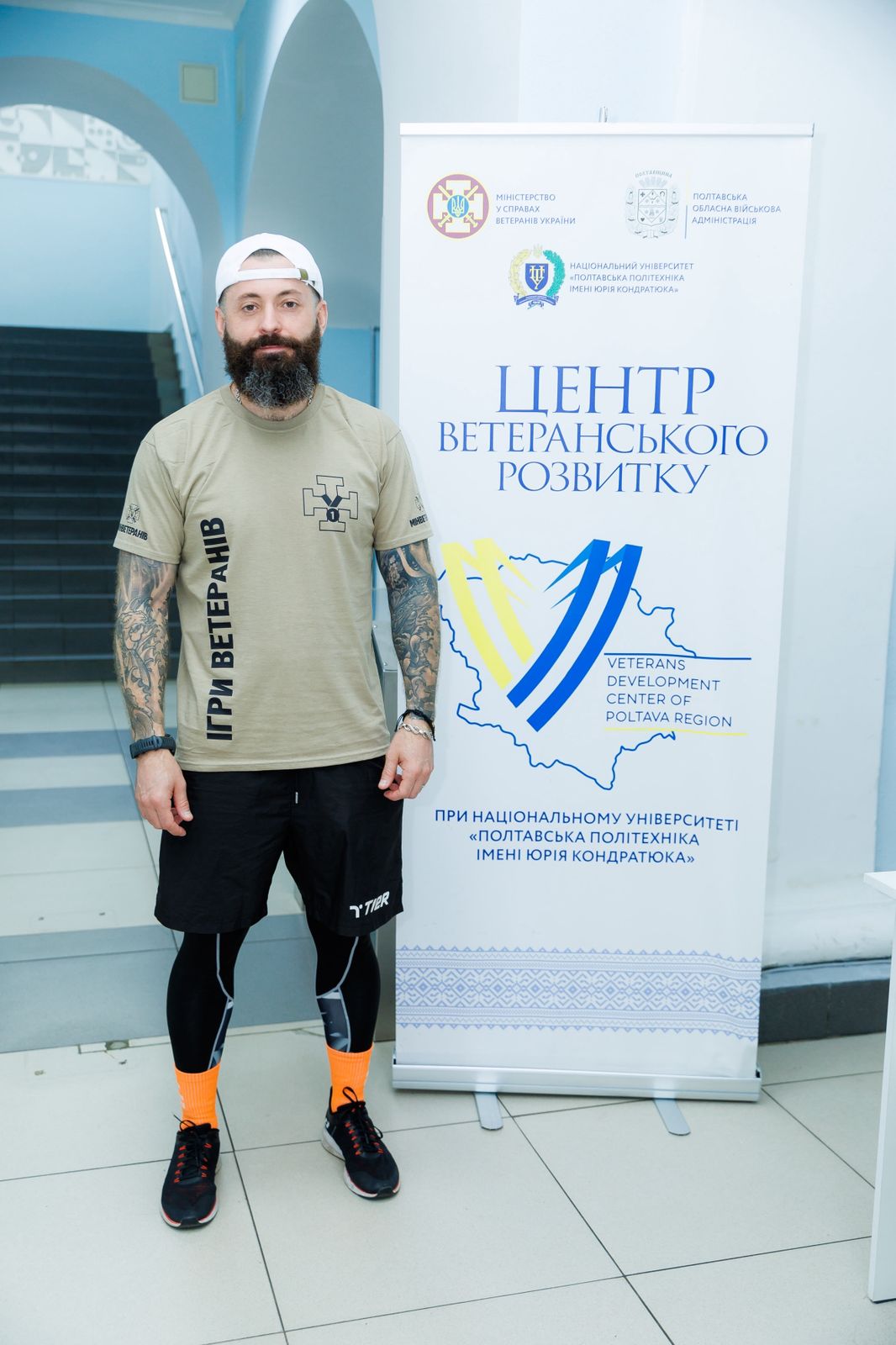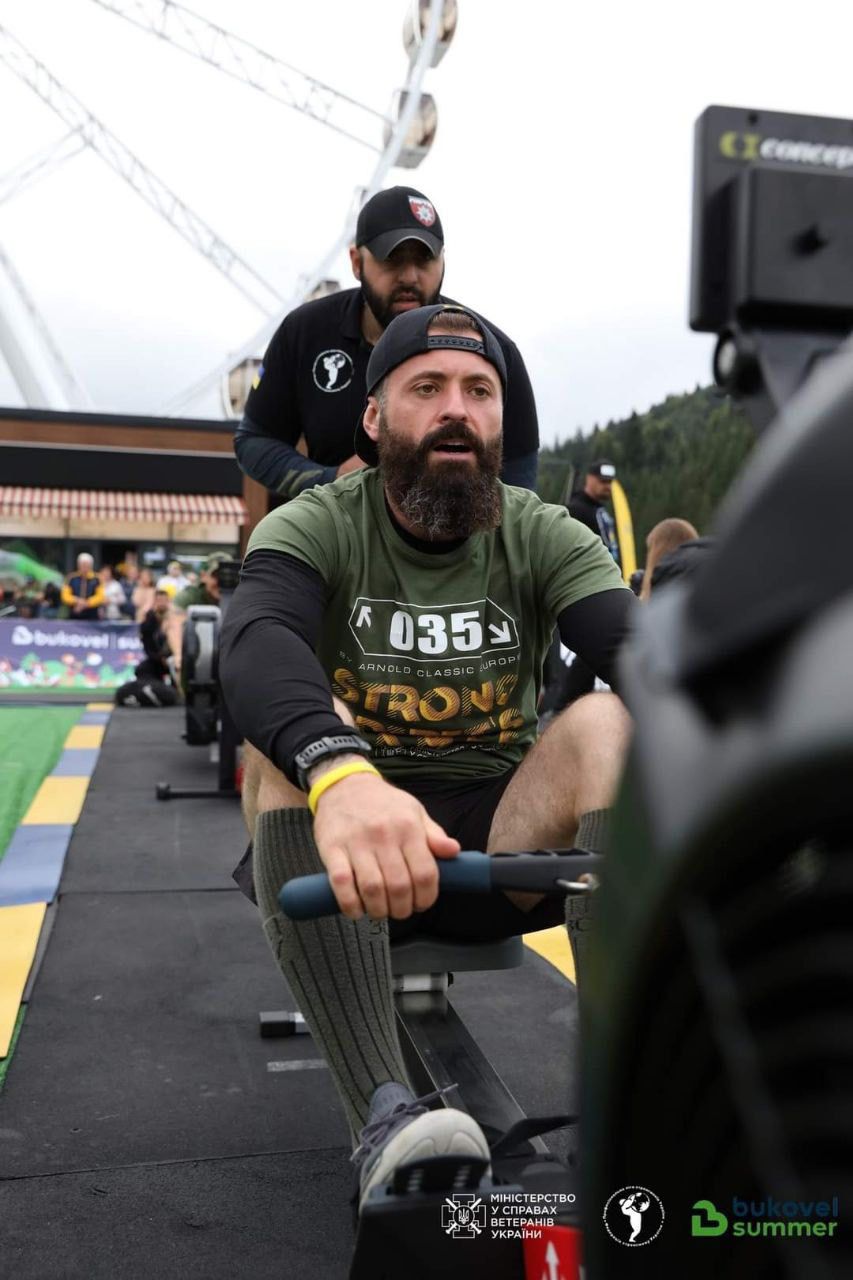Oleksandr Mormul

Oleksandr Mormul is a veteran of the Russian–Ukrainian war, ATO. He began his service as a platoon deputy commander (junior lieutenant), later leading a company. He completed his military service in the 183rd Reserve Brigade of the 10th Army Corps, where he worked as a training officer and an instructor in tactics and firearms.
Today, Oleksandr is a specialist supporting veterans and demobilized service members in the Poltava community. He is also among the first graduates of our Career Consultant course and now works with veterans every day.
We spoke with him about what concerns veterans most and how to bridge the gap between civilian society and those who return from the front.
Oleksandr, what kind of requests do veterans most often bring to you?
The main issues veterans raise are payments and compensations. Here in Poltava, we have a local program called Tурбота (“Care”), which provides financial and social assistance. Veterans also seek support on medical treatment, rehabilitation and health resorts. For the wives and children of combat veterans, we organize community activities such as yoga, pottery, and hippotherapy.

What are the most common barriers veterans face in civilian life after returning from service?
Everything that civilian life represents, absolutely everything. From the moment you close your apartment door behind you, to the moment you close it again from inside. Misunderstanding, a sense of distance, indifference. Careless comments and inappropriate questions from civilians about soldiers and their service.
What can society, and individuals in particular, do to support veterans’ reintegration?
The best thing is to communicate more and spend time among veterans. For example, if you know a veterans’ sports competition is happening in your city, go and watchб see how we interact with one another. Books won’t teach you that; you can only feel it in practice. Come to public events for veterans, engage with them. That’s the best way for civilians to begin to understand what is going on in a veteran’s mind. And for us, it’s proof that we are not invisible to society. Volunteer, visit veterans, see how they live, how they joke with each other - this gives you real understanding. To truly understand a veteran, you need to walk at least part of their path. That’s when society will have fewer questions and more empathy.
What do you like most and least about your work?
Least? Too many reports and spreadsheets (laughs).
%20(20).png)
Most? Solving the problems veterans bring to me. Because I’ve been on this journey myself since 2015, I know what it feels like to face misunderstanding or indifference. And when someone comes to you with a problem, and you help resolve it—that’s when you know the day wasn’t wasted, you made a real difference in someone’s life.
I always tell the guys: I take part in as many events as possible myself. Before recommending something, I try it first. Then I share with them how it really is.
Being a support specialist means being a bit of everything: like a kindergarten teacher, a musician, a creator - many roles in one. If you don’t have the heart for it, if your soul doesn’t ache for it, then this isn’t the right job.
There are many nuances in our work, but I believe the foundation must be the principle of “peer-to-peer.” Not every veteran can fully open up, even to another veteran. But for someone from civilian life, it’s almost impossible to truly understand what a veteran has lived through. Another veteran will always understand best and therefore, can truly help.




